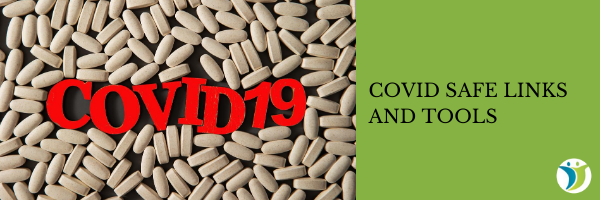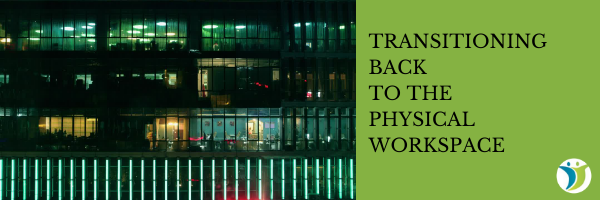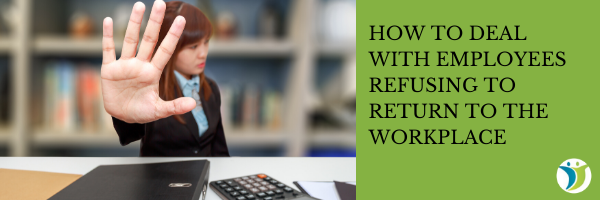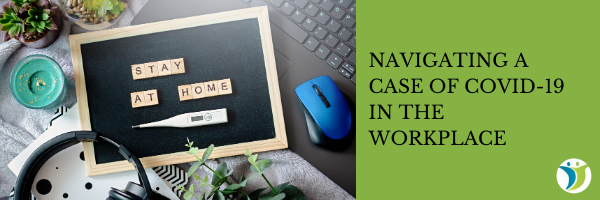MANAGING YOUR POST COVID TRANSITION TO THE PHYSICAL WORKPLACE
ARTICLES
Department of Health
World Health Organisation (WHO)
https://www.who.int/emergencies/diseases/novel-coronavirus-2019
Economic Response:
Australian Government - The Treasury https://treasury.gov.au/coronavirus
Job Keeper Scheme - https://treasury.gov.au/coronavirus/jobkeeper
Support Payments - Employers https://www.ato.gov.au/
Support Payments - Employees https://www.servicesaustralia.gov.au/individuals/subjects/affected-coronavirus-covid-19
COVID-19 Working From Home tax deduction https://www.ato.gov.au/General/COVID-19/Support-for-individuals-and-employees/Employees-working-from-home/
Enforceable Government Direction https://coronavirus.fairwork.gov.au/coronavirus-and-australian-workplace-laws/government-information-about-coronavirus/list-of-enforceable-government-directions-during-coronavirus
Travel Advice https://www.smartraveller.gov.au/news-and-updates/coronavirus-covid-19
Health and Safety:
Safe Work Australia - https://www.safeworkaustralia.gov.au/doc/coronavirus-covid-19-advice-pcbus?20
Australian Capital Territory: Work Safe ACT https://www.covid19.act.gov.au/
New South Wales: SafeWork NSW https://www.safework.nsw.gov.au/resource-library/COVID-19-Coronavirus
Northern Territory: NT WorkSafe https://worksafe.nt.gov.au/forms-and-resources/news-and-events/news/2020/advice-on-coronavirus-covid-19
Queensland: Workplace Health and Safety Queensland https://www.worksafe.qld.gov.au/coronavirus?utm_source=campaign+homepage&utm_medium=website&utm_content=covid-19+image+link&utm_campaign=novel+coronavirus+2019
South Australia: SafeWork SA https://www.safework.sa.gov.au/news/coronavirus-covid-19-workplace-information
Tasmania: WorkSafe Tasmania https://www.worksafe.tas.gov.au/topics/Health-and-Safety/safety-alerts/coronavirus
Victoria: WorkSafe Victoria https://www.worksafe.vic.gov.au/infectious-diseases
Western Australia: WorkSafe WA https://www.commerce.wa.gov.au/worksafe/covid-19-coronavirus
Managing Aggressive Behaviour - .https://www.safework.nsw.gov.au/resource-library/COVID-19-Coronavirus/managing-aggressive-behaviour-during-a-pandemic
Mental Health Support:
Black Dog Institute - https://www.blackdoginstitute.org.au/
Beyond Blue - https://www.beyondblue.org.au/
Lifeline - https://www.lifeline.org.au/
Kids Help Line - https://kidshelpline.com.au/
Mens Line - https://mensline.org.au/
Relationships Australia - https://www.relationships.org.au/
Domestic & Family Violence Support
https://www.1800respect.org.au/
https://dvbusinesssolutions.com.au/
Hatch Exchange - COVID-19 Labour Exchange for Stood Down Workers
https://www.hatch.exchange/?gclid=EAIaIQobChMInJOn1tL16AIVRgVgCh3EcAymEAAYASAAEgLdTPD_BwE
In response to the COVID-19 crisis, the Fair Work Commission has made a determination to make temporary variations to 99 Awards. The changes come in response to the Fair Work Commission identifying a regulatory gap between COVID-19 public health and government directives and the protections an employee has under the Fair Work Act.
The variations cover two key areas; unpaid pandemic leave and annual leave at half pay. These changes are outlined below.
Pandemic Leave
Full-time, part-time and casual employees are entitled to two weeks of unpaid pandemic leave if they are prevented from working as a result of being directed to self isolate by government or medical authorities, or on the advice of a medical practitioner, or by measures taken by government or medical authorities in response to COVID-19 (i.e. an enforceable government direction restricting non-essential businesses).
There is no requirement to accrue this leave, it is available immediately in full and there is no requirement for employees to use their paid leave prior to accessing pandemic leave.
Any pandemic leave must start before 30 June 2020. This leave continues to act as service for any entitlements owed under an Award or the National Employment Standards.
An employee must advise their employer as soon as possible that they are going to take unpaid pandemic leave, the reason for the leave and how long they expect to be off work. An employer may request evidence, such as a medical certificate.
Employees are protected against any adverse action taken against them (including dismissal) by an employer as a result of their entitlement to unpaid pandemic leave.
Annual Leave
The changes allow an employer and employee to agree to the taking of annual leave at half pay. This means an employee can essentially double their time off (i.e. an employee may take 2 weeks off and receive the equivalent of 1 week annual leave payment).
Impacted Awards,
Click here to see the 99 awards impacted by this change.
Conclusion
As with all of the changes we are seeing come through, as a result of COVID-19, it is imperative that you familiarise yourself with the provisions of the Awards that impact your business. For help in understanding these new changes please contact Employee Matters on (02) 8021 4206 – or email us on info@employeematters.com.au.
COVID 19 RESPONSE - Job Keeper/ Fair Work Act Changes
In response to the COVID-19 crisis and to assist with the implementation of the Job Keeper scheme, the Australian Government yesterday passed temporary amendments to the Fair Work Act. The focus of attention has been on the Job Keeper payment, introducing wage subsidies which Industrial Relations Minister Christian Porter said are "temporary but critical" and "will allow the $1,500 (a fortnight Job Keeper) payments to lawfully flow and a number of other flexibilities that will be job-saving".
However the legislation also allows for much more flexibility to allow employers who qualify for the Job Keeper Scheme to make lawful "Job Keeper-enabling stand downs'' to employees eligible for the scheme.
These welcome changes will be safety-netted by all decisions being reviewable by the Fair Work Commission.
A snapshot of the changes to the Fair Work Act are outlined below.
What is a ‘Job Keeper-enabling stand down’?
It is important to recognise in the first instance that a Job Keeper-enabling stand down differs significantly from a ‘stand down’ as defined by relevant industrial instruments, contracts of employment and section 524 of the Fair Work Act, whereby an employee still remains employed by a business but no longer completes work and therefore is no longer paid.
A Job Keeper-enabled stand down will allow an eligible employer to temporarily reduce or alter an eligible employee’s:
- Hours
- Days worked
- Location of Work (where in all circumstances it is safe and reasonable to do so)
- Duties (where in all circumstances it is safe and reasonable to do so)
Furthermore, it will allow employers to reach arrangements where employees take paid annual leave, including at half pay. The caveat is that an employee’s annual leave entitlement does not fall below two weeks.
How is a Job Keeper-enabling stand down to be implemented?
Reduction in Hours
A reduction in hours can only be implemented where an eligible employee cannot be usefully employed at their full hours, taking into consideration the pandemic and government and policy response to stop the spread of COVID-19.
You can only move to alter an employee's hours where, as a result of COVID-19, there is either no work or limited work compared to what the employee would usually do.
The reduction in hours must be reasonable and their hourly rate must not change. You can alter an employee’s hours but you cannot change what is owed to them under a relevant industrial instrument.
An employee who has reduced hours as a result of a Job Keeper-enabled stand down can ask their employer for the ability to seek secondary employment.
Changes to Duties and Location of Work
Changes to duties and location of work can only be made where these changes are necessary to ensure an employee’s continued employment and can only be made where it is safe and reasonably practical to do so.
Any changes to duties must be within an employee’s level of skill, qualifications and competency and can only be done within the scope of the business.
Changes to Days Worked
Employers and employees can agree to application of days worked i.e. an employee may be requested to work Monday, Tuesday and Wednesday instead of their usual days of work Wednesday, Thursday and Friday.
This arrangement can only be executed on agreement by the employee but the legislation states that an employee cannot unreasonably refuse to make such an agreement.
Request to take Annual Leave
Similar to the changes to days worked, employers and employees can agree to reduce an employee’s annual leave entitlement by having them take leave.
Again, this arrangement can only be implemented on agreement by the employee, and the employee cannot unreasonably refuse to make such an agreement.
Employers can only make such a request where an employee will retain a two week annual leave entitlement.
Conclusion
The introduction of these changes will allow employers flexibility in these challenging times and potentially save many jobs. We recommend that all employers who are eligible for Job Keeper payments, clearly understand these changes. The above outlines a general snapshot of these changes and it is extremely important that you get the appropriate advice prior to the implementation of a Job Keeper-enabled stand down.
For help in understanding and implementing the new arrangements please contact us on (02) 8021 4206 – or email us on info@employeematters.com.au.

In response to the COVID-19 outbreak and, in particular to support some of the hardest hit industries, the Fair Work Commission has approved temporary changes to the Clerks, Hospitality and Restaurant Awards. This follows joint applications for these changes made by employer groups and unions.
The welcome changes allow employers flexibility in applying a temporary reduction of hours, changing an employee's duties and an allowance to enforce a direction of annual leave. The Clerks Award also allows for greater flexibility for an employer who has employees working from home. A brief snapshot of these changes is outlined below.
Clerks - Private Sector Award 2010
- Employers and full and part time employees can agree to a temporary reduction in ordinary hours of up to 25%
- Employers can direct an employee to do any tasks, even if the tasks aren’t in their usual classification or normal work. Obviously, the task must be safe and the employee must have the skill, qualifications and competency to complete the task. If an employee works above their usual classification for more than one day, the employee must receive payment at a higher rate.
- Part time and casual staff currently working from home can be engaged in a reduced minimum period of 2 hours per shift.
- Employees working from home can agree with their employer to change their span of hours to allow them to work Monday - Friday 6am - 11pm and Saturday 7am - 12:30pm.
- Employers can direct an employee to take annual leave by giving their employees at least 1 weeks notice.
- Employees can also agree to take up to twice as much annual leave at a proportionately reduced rate.
Changes to the Clerks- Private Sector Award 2010 apply from 28 March to 30 June 2020.
Hospitality Industry (General) Award 2010 & Restaurant Industry Award 2010
- Employers and employees can agree to reduce their permanent employees’ hours of work to an average of between 22.8 and 38 ordinary hours each week for full time employees or between 60% and 100% of the guaranteed hours per week or over the roster cycle for part time employees.
- Employers can direct an employee to do any tasks, even if the tasks aren’t in their usual classification or normal work. Obviously, the task must be safe and the employee must have the skill, qualifications and competency to complete the task.
- Employers can direct an employee to take annual leave by giving their employees at least 24 hours notice
- Employers and employees can agree to take up to twice as much annual pay at half pay (Hospitality Award only)
- Employers can direct employees to take annual leave by giving them at least 1 week’s notice if a business is closing down for a certain period. If they do not have enough annual leave to cover they can receive unpaid leave for the remainder of the close down (Restaurant Industry Award only)
Changes to the Hospitality Industry (General) Award 2010 applies from an employee’s first full pay period on or after 24 March until 30 June 2020
We suggest you familiarise yourself with the specific requirements of each of these changes by referring to the provisions in your Award. Alternatively, contact the Employee Matters team for advice.
Other Changes on the Horizon
As this situation continues to evolve and industries seek to ensure flexibility to help their businesses survive and protect their employees, we will see many of these changes coming through. There is currently an application underway which would see changes to 103 of the 122 industrial awards, after the Fair Work Commission identified a gap in current laws which resulted in employees not having a legal entitlement to self isolation for 14 days if their employers did not approve it. The proposed change would include access to two weeks of unpaid pandemic leave for all full time, part time or casual employees who were required to isolate on medical advice or government direction. Watch this space with regard to the Fair Work Commission’s application!
As the legal landscape continues to evolve in response to the unprecedented COVID-19 outbreak it is imperative employers keep informed of changes that affect their industry and Award. For any help or general HR advice on how to navigate these changes, please contact the team at Employee Matters on (02) 8021 4206 – or email us on info@employeematters.com.au
Disclaimer: The advice, information and resources provided by Employee Matters in response to the COVID-19 impacts and any policies, processes and documentation provided to you, is generic and not specific to any business. It is based on the guidance and information we have at the time you receive it. It does not constitute specific legal advice and should not be relied upon as such. Employee Matters will not assume any legal liability that arises from our advice or use of our documentation
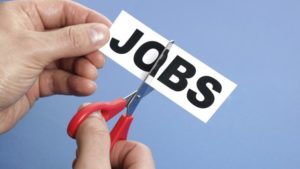 The challenging and evolving nature of the COVID-19 outbreak on businesses has brought to the forefront the provision of stand downs in employment. The media has shown us heartbreaking scenes of businesses forced to close due to government direction, airplanes grounded and people out of work lining the streets outside Centrelink some still wearing the uniforms they had shown up to work in. So what exactly is a stand down and when can it be executed? It's not as simple as it might seem. What is a stand down? A stand down is when an employee still remains employed by a business but no longer completes work and therefore is no longer paid. An employee can generally access accrued annual leave and long service leave during a stand down and they continue to accrue entitlements. Industrial Instruments, such as Modern Awards or Enterprise Agreements as well as contracts of employment, may contain provisions which allow stand downs and may prescribe when and how these can transpire. Where there is no provision, employers may utilise section 524 of the Fair Work Act. In what instances can I stand down my employees? The first step all employers need to take when considering a stand down is to understand the provisions of a contract of employment or industrial instrument. Where there is a provision outlined in these documents you must follow the process cautiously and in its entirety. Where there is no provision, employers must follow the prescriptive process as outlined in the Fair Work Act. Employers need to be very aware that there are only limited situations in which you can stand down employees as a result of the COVID-19 outbreak. Some examples are outlined below:
The challenging and evolving nature of the COVID-19 outbreak on businesses has brought to the forefront the provision of stand downs in employment. The media has shown us heartbreaking scenes of businesses forced to close due to government direction, airplanes grounded and people out of work lining the streets outside Centrelink some still wearing the uniforms they had shown up to work in. So what exactly is a stand down and when can it be executed? It's not as simple as it might seem. What is a stand down? A stand down is when an employee still remains employed by a business but no longer completes work and therefore is no longer paid. An employee can generally access accrued annual leave and long service leave during a stand down and they continue to accrue entitlements. Industrial Instruments, such as Modern Awards or Enterprise Agreements as well as contracts of employment, may contain provisions which allow stand downs and may prescribe when and how these can transpire. Where there is no provision, employers may utilise section 524 of the Fair Work Act. In what instances can I stand down my employees? The first step all employers need to take when considering a stand down is to understand the provisions of a contract of employment or industrial instrument. Where there is a provision outlined in these documents you must follow the process cautiously and in its entirety. Where there is no provision, employers must follow the prescriptive process as outlined in the Fair Work Act. Employers need to be very aware that there are only limited situations in which you can stand down employees as a result of the COVID-19 outbreak. Some examples are outlined below:- a business has closed because of an enforceable government direction relating to non-essential services (which means there is no work at all for employees to do even from another location)
- a large proportion of the workforce is in self-quarantine meaning the remaining employees cannot be usefully employed
- there’s a stoppage of work due to lack of supply for which the employer can’t be held responsible.
- there’s a stoppage of work for any cause which the employer cannot be reasonably held responsible
- Whether employees considered for stand down could be utilised elsewhere in a business and if redeployment opportunities exist
- If the stoppage of work is sufficient enough for an employer to not be reasonably held responsible. An example of this is where an enforceable government direction has resulted in the closure of a business. In this instance the situation in which the stoppage of work occurred was completely out of the hands of the employer.
In addition, our Working From Home Pack is also available for purchase Here which has comprehensive information for employees and employers, including a bespoke COVID-19 Working From Home Policy.


